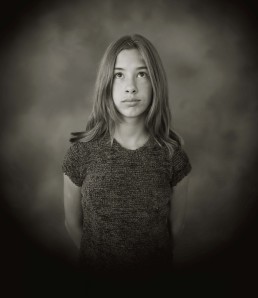S3: Fine Line - Episode 4 - Taylor

Episode Information
Fine Line: Mental Health/Mental Illness – Episode 4 – Taylor
[Intro Music]
Narrator: Welcome to Season three Fine Line narrative histories about mental health and mental illness, a traveling exhibition and weekly podcast edited and hosted by Michael Nye, supported by Kronkosky Charitable Foundation. May you find insight and understanding in these voices. Episode four, Taylor.
Taylor: One day, my family was taking a trip. We were going to just walk downtown and just be out in a fresh air. We decided that we should go visit the Alamo. I can’t remember why, but after a while, my brother had a temper tantrum in public. My parents were holding him, and I decided I was going to sit away from them. I sat on a bench and I was appalled at how all these people were just standing and gawing at him. Some rushed their children by some just stood there. Some wanted to get out of there as fast as they possibly could. Then a lady walked up to me and sat down next to me and started asking questions about my brother. I explained that my brother was bipolar. It’s a mental illness. She asked, does he normally do this? I said, yes, it’s usual.
I’m used to it, if that’s what you mean. She asked, does it usually last long? And I said, you never know how long it’s gonna take. Sometimes it can be as short as a couple minutes. Sometimes it can last three hours, but it could also be a day thing. The police showed up and they started asking my brother, my parents too, if they needed to take him away. I was shocked at how they didn’t understand what he was going through. The lady left. She didn’t say anything, but she had a shocked and surprised expression on her face. When my brother finally calmed down, the police left. We went home that day. That was the first time I had seen my brother have a temper tantrum in public and had seen how the public reacted to it. Mental illness is not something to be ashamed of.
It is something that could bring your family together. And it’s not just that person’s fault that he got it or she got it. They can’t help it. My brother has to go through frustration, making the right choices. The great thing about him is that he’s always creative, and if you are talking to him about something and you know that he’s not gonna give you any real good advice, and then out comes like this, great advice, and you don’t know why you didn’t think of it and how he did, and that’s why it’s so amazing. And I just love to talk to him and hear what he thinks about things unfair. Things that people shouldn’t say are crazy. Are you retarded? Or when they’re just joking around with their friends and call them, call their friends mental. They don’t understand that some people really have mental illnesses, and if they understood, they probably wouldn’t be saying those things. I am a girl who is very opinionated, very open, and in very loud and wild. My age is 12. I have lots of huge goals that I want done in the future. A girl who is trying to make a difference in her and other people’s lives.
[Outro Music]
Host: A woman I interviewed once told me Mental illness is about a portrayal of language. If only I could show them what it’s like is listening. What makes real conversations possible is empathy, that defining feature in human relationships? Taylor is the sister we all want in our family. She’s caring from many, many perspectives. How did she discover wisdom in the use of language at such a young age? Thank you, Taylor, for your deep understanding and your presence. May something in her story stay with you. I’m Michael Nye. You can go to my website, michaelnye.org/podcastFor Taylor’s portrait and transcript. Thank you for listening.
